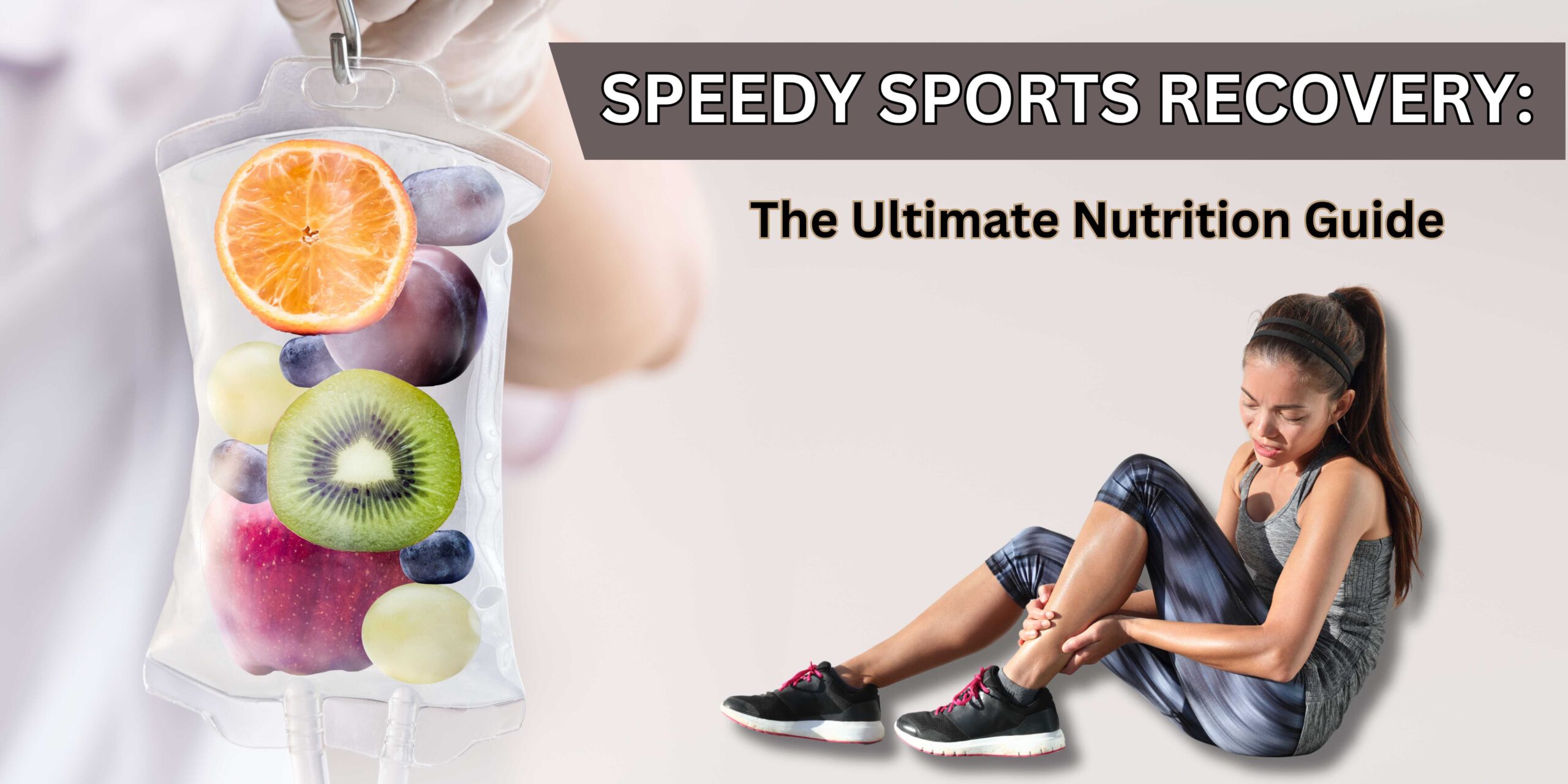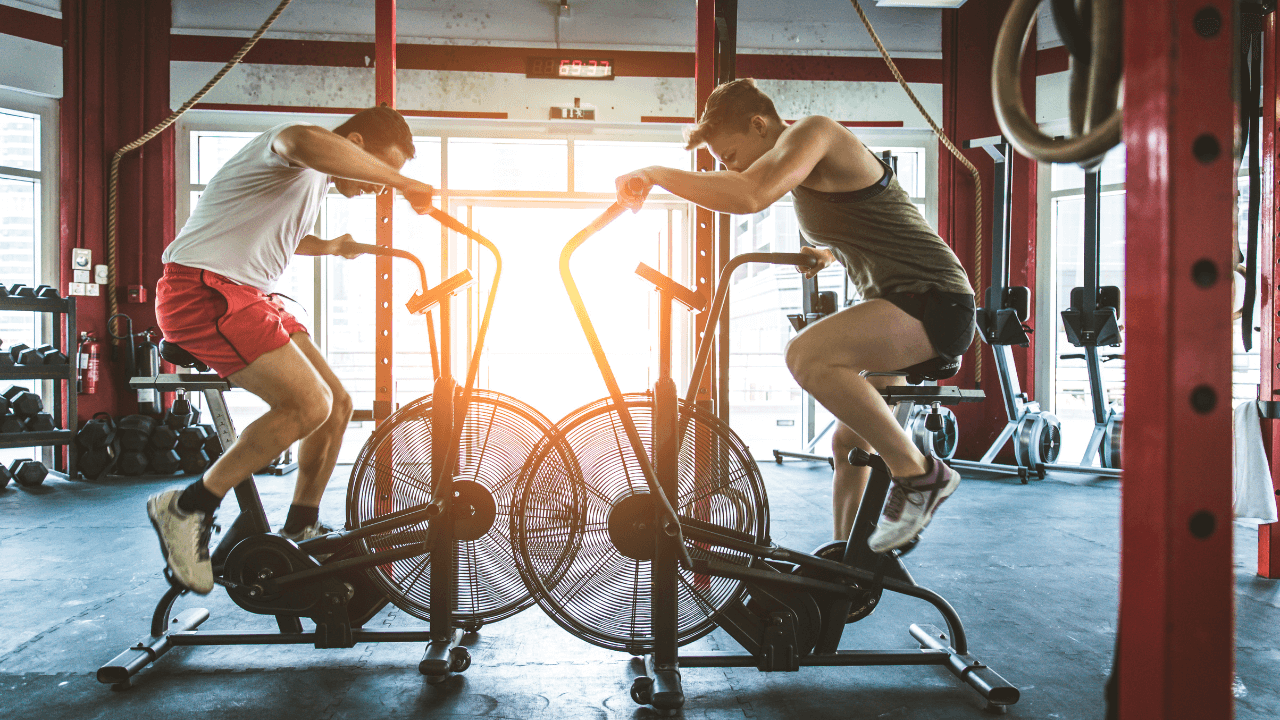As athletes, we strive to achieve our maximum potential by pushing our bodies to their limits. Still, what happens after the game, match, or workout is just as important as what happens during it. Consuming the proper nutrients is essential for a successful recovery. In this ultimate guide for speedy sports recovery nutrients, we’ll delve into the science behind the recovery process, explore the role of macronutrients and micronutrients, hydration, and even popular supplements. With this knowledge, you can optimize your recovery and take your performance to the next level.
The Science of Sports Recovery
Recovery is a crucial component of sports training, and understanding the different phases of the recovery process is essential to optimize performance. Divide the recovery process into immediate, short-term, and long-term phases.
Immediate Phase
The immediate recovery phase starts right after the exercise session and lasts up to an hour. During this phase, the body is in a catabolic state, breaking down muscle tissue to meet the energy demand. Consuming carbohydrates during this phase can help switch the body to an anabolic state and promote recovery.
According to a publication in the Journal of the International Society of Sports Nutrition, beverages high in carbohydrates after a workout can enhance glycogen resynthesis and boost performance in subsequent exercise sessions (Sands et al., 2011).
Short-Term Phase
The short-term recovery phase occurs within the first few hours after exercise and can last up to 24 hours. During this phase, the body repairs damaged tissue and replenish glycogen stores. Consuming protein during this phase can help repair muscle damage and promote muscle growth.
A study published in the American Journal of Physiology-Endocrinology and Metabolism found that consuming protein after exercise can increase muscle protein synthesis and promote recovery (Moore et al., 2009). Additionally, consuming carbohydrates during this phase can help replenish glycogen stores and promote protein synthesis.
Long-Term Phase
The long-term recovery phase can take up to several days, depending on the intensity and duration of the exercise. During this phase, the body adapts to the training and improves its ability to withstand similar stress in the future. Consuming adequate nutrition during this phase is essential to prevent overtraining and injury.
Research has shown that eating healthy protein can help keep your muscles strong and working well after exercising, released in the Journal of the International Society of Sports Nutrition (Stark et al., 2018).
Consuming carbohydrates and protein within 30 minutes to an hour post-exercise can improve recovery and replenishment of glycogen. Additionally, adequate nutrition during long-term recovery can prevent overtraining and injury.
Additionally, consuming foods with antioxidants and anti-inflammatory nutrients can help reduce muscle damage and inflammation. Nutrient timing is essential during each phase of the recovery process to maximize the benefits of recovery nutrition. Here are examples of foods high in antioxidants and anti-inflammatory properties.

Macronutrients for Sports Recovery
Athletes require a balanced diet with macronutrients to support their recovery and performance. Macronutrients, which include carbohydrates, protein, and fats, play a crucial role in repairing and rebuilding muscles after exercise.
Carbohydrates
Carbohydrates are the body’s primary energy source during exercise. During physical activity, glycogen stored in muscles and the liver is used as fuel. Adequate carbohydrate intake is crucial for replenishing glycogen stores and optimizing recovery after exercise. A study by Ivy et al. (2003) showed that consuming a high-carbohydrate diet after training led to higher muscle glycogen storage than a low-carbohydrate diet.
A recommended daily carbohydrate intake for athletes is between 6 and 10 grams per kilogram of body weight, depending on the intensity and duration of their training, as stated by Thomas et al. (2016). Athletes can incorporate nutrient-dense carbohydrate sources, such as fruits, vegetables, whole grains, and legumes.
Protein
Protein plays a critical role in muscle recovery and repair. Muscle tissue is damaged during exercise, and protein is necessary for rebuilding and strengthening muscle fibres. Adequate protein intake is essential for maintaining a positive nitrogen balance and promoting muscle growth and repair.
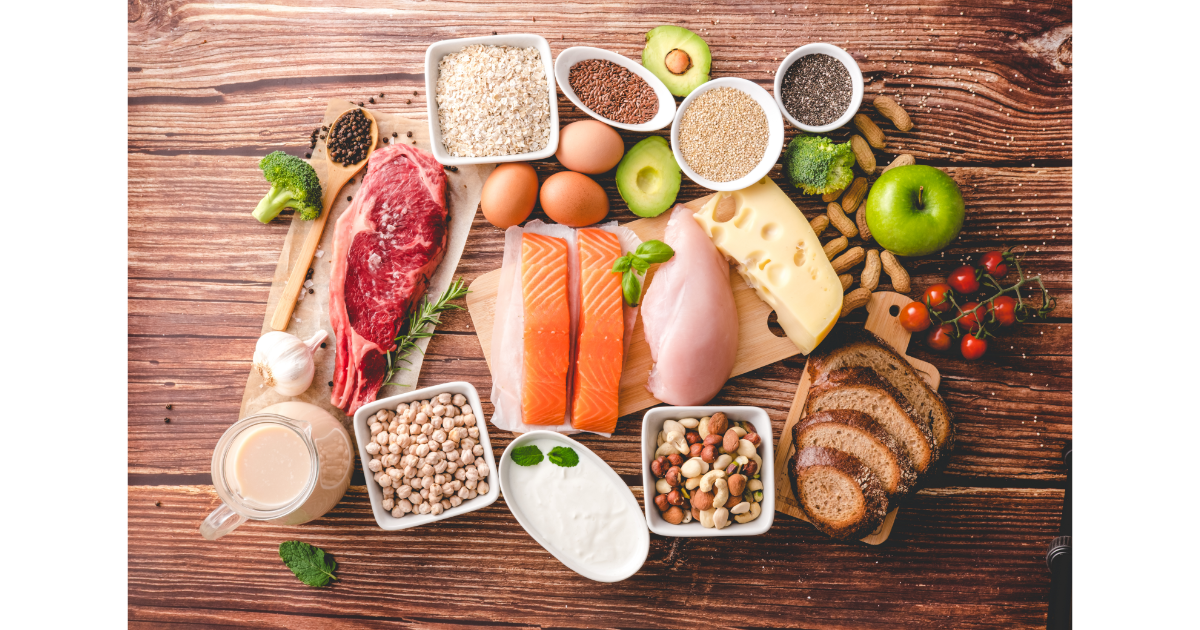
The recommended protein intake for athletes is between 1.2 to 2.0 grams/ kilogram of body weight per day (Thomas et al., 2016). Athletes can incorporate protein-rich foods like lean meats, poultry, fish, eggs, dairy products, and plant-based sources like beans, lentils, and tofu.
Fats
Although carbohydrates are the primary fuel source for exercise, fats are crucial for energy production and cellular function. Did you know that Omega-3 fatty acids are relevant in fighting inflammation? Their anti-inflammatory properties can work wonders in the recovery process.
The recommended intake of fats for athletes is between 20 to 35% of their total daily caloric intake (Thomas et al., 2016). Athletes can incorporate healthy fats into their diet, such as nuts, seeds, avocados, fatty fish, and olive oil.
Incorporating nutrient-dense foods into an athlete’s diet can provide the necessary macronutrients to support their recovery and performance. Consuming a well-balanced diet consisting of diverse food options can aid athletes in obtaining the essential vitamins and minerals required for optimal performance. This can help them recover better after exercising.
Micronutrients for Sports Recovery
Proper intake of micronutrients such as vitamins and minerals is essential for athletes to support their recovery and overall performance. Vitamins and minerals are necessary for various physiological functions, including bone health, energy production, and immune system function.
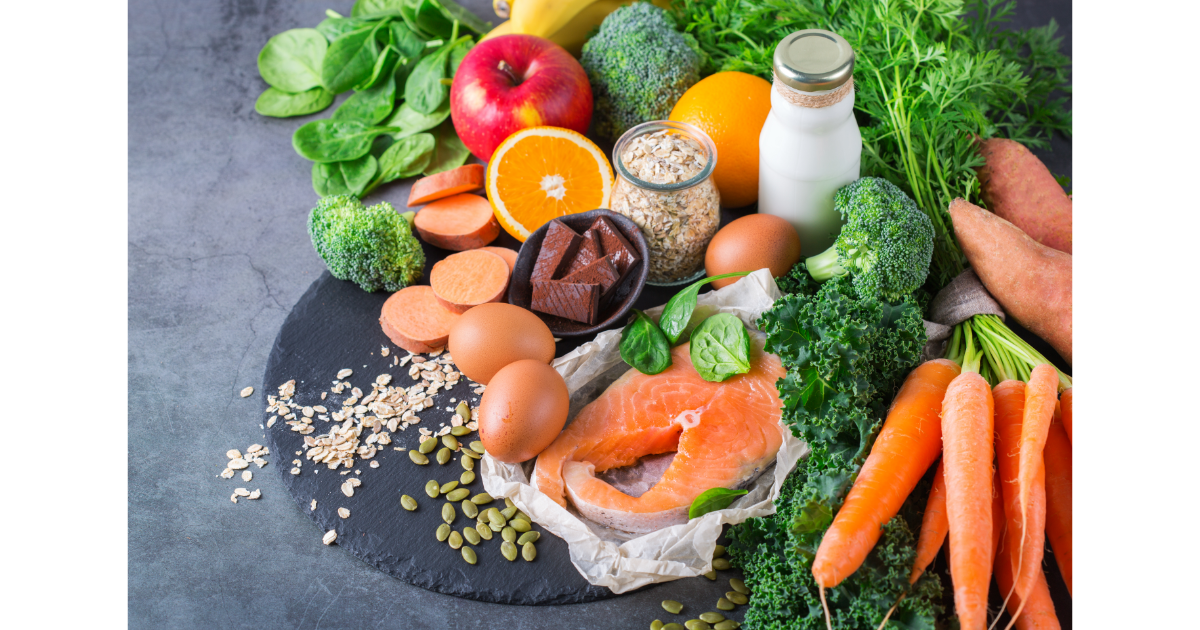
- Iron is an indispensable mineral essential in transporting oxygen to muscles. It is important to note that female athletes are susceptible to iron deficiency due to menstruation and insufficient iron-rich foods, which may negatively impact their overall health and athletic performance.
- It is crucial to address this issue and educate athletes on the significance of a well-balanced and nutritious diet to prevent deficiencies. Research has shown that iron supplementation can improve performance and reduce athlete fatigue (Peeling et al., 2014).
- A study found that magnesium is essential for your body. It helps your muscles and nerves work, makes energy, and helps to build proteins. Additionally, studies have shown that supplementing with magnesium can enhance athletic performance, decrease muscle damage, and reduce inflammation in athletes (Nielsen & Lukaski, 2006).
- Maining bone health and immune system function requires Vitamin D. Athletes who train indoors or in areas with limited sun exposure may be at risk of vitamin D deficiency. Research suggests that vitamin D supplementation can improve muscle strength and reduce athletes’ risk of stress fractures (Close et al., 2013).
Athletes can incorporate nutrient-dense foods into their diet to ensure adequate intake of these micronutrients. Some examples of foods high in iron include red meat, poultry, fish, beans, and leafy green vegetables.
Magnesium is present in nuts, seeds, whole grains, and green leafy vegetables. We can get vitamin D by consuming fatty fish and fortified dairy products or by exposing ourselves to sunlight.
Hydration for Sports Recovery
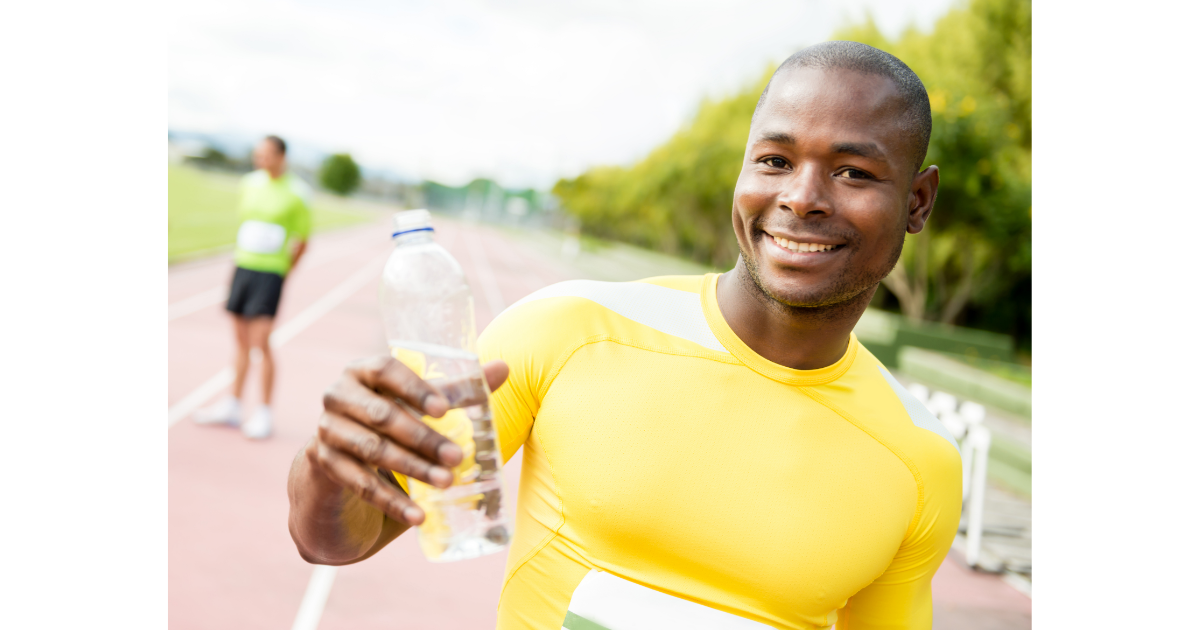
- Proper hydration is crucial for sports recovery as dehydration can decrease athletic performance, increase the risk of injury, and delay recovery (Sawka et al., 2007). It is advised that athletes should strive to consume adequate fluids to sustain their body weight before, during, and after working out. (Casa et al., 2000).
- To calculate their fluid needs, athletes can weigh themselves before and after exercise and drink enough fluids to replace the weight lost (Maughan et al., 2007). For example, if an athlete loses 1 kg of body weight during exercise, they should drink at least 1 litre to replace the lost fluids.
- Athletes must also drink fluids before they feel thirsty, as thirst is not always an accurate indicator of hydration status (Shirreffs & Sawka, 2011). Athletes should also consider selecting fluids with sodium and potassium to replenish the electrolytes lost during sweating.(Maughan et al., 2016). Examples of hydration fluids that contain electrolytes include sports drinks and coconut water.
- In addition to drinking fluids during exercise, athletes should continue to hydrate after workouts to aid in recovery. Athletes can monitor their hydration status by checking their urine colour, aiming for pale yellow urine to indicate proper hydration (Oppliger et al., 2005).
Supplements for Sports Recovery
Athletes often turn to supplements to enhance their recovery process. However, it is vital to understand the science behind these supplements and whether they are effective.
Branched-Chain Amino Acids
BCAAs, or branched-chain amino acids, are popular supplements for sports recovery. BCAAs are a collection of amino acids essential for the body, including leucine, valine and isoleucine, which are vital in protein synthesis and muscle recovery (Shimomura et al., 2010). However, while BCAAs have improved recovery in some studies, other research has found no significant benefits (Jackman et al., 2010).

Creatine
Creatine is another popular supplement used for sports recovery. The body produces creatine naturally, and it helps with energy production during exercise. Studies have indicated that adding creatine can aid in the recovery of muscles, amplify muscle size, and elevate exercise proficiency.(Kreider et al., 2017).
Glutamine
Glutamine is an amino acid commonly used for sports recovery. It is involved in immune function and helps to prevent muscle breakdown. While some studies have suggested that glutamine supplementation can improve muscle recovery and reduce muscle soreness, other research has found no significant benefits (Legault et al., 2015).
While some supplements may be effective for sports recovery, being aware of potential risks and side effects is essential. For example, high doses of creatine supplementation have been associated with gastrointestinal issues, muscle cramps, and dehydration (Kreider et al., 2017). Therefore, athletes should always consult a healthcare professional before taking supplements.
Conclusion
Proper nutrition is crucial for sports recovery, and athletes must pay close attention to their diet to optimize their performance and prevent injuries. This article discussed the science behind sports recovery, the role of macronutrients and micronutrients, hydration, and supplements in recovery.
Some important points to remember from this article are the significance of having a well-balanced diet that has enough carbohydrates, proteins, healthy fats, and micronutrients like iron, magnesium, and vitamin D.
Athletes must also stay well-hydrated and avoid dehydration during and after exercise. While supplements like BCAAs, creatine, and glutamine may offer some benefits, athletes must be aware of potential risks and side effects before using them. By following these guidelines, athletes can optimize their recovery and perform at their best.
References:


